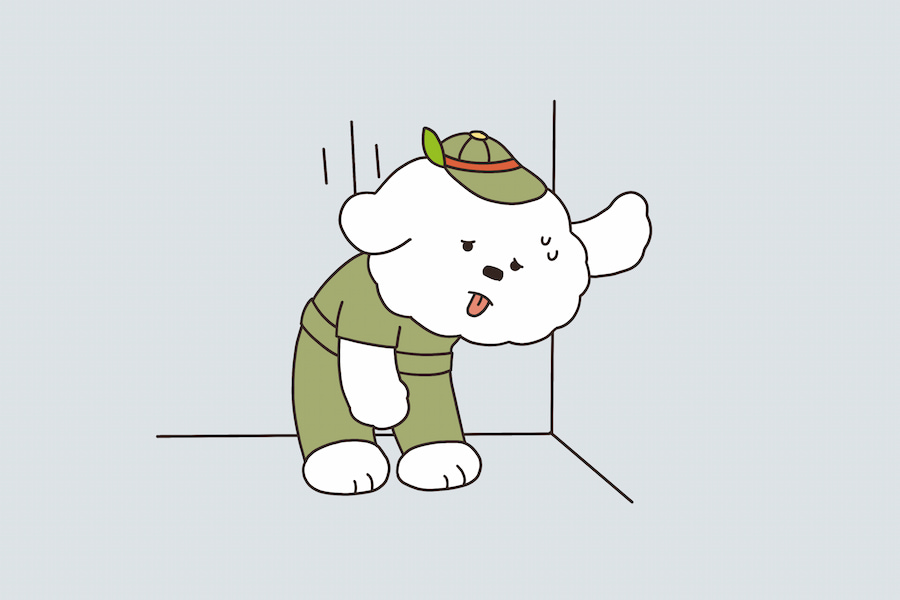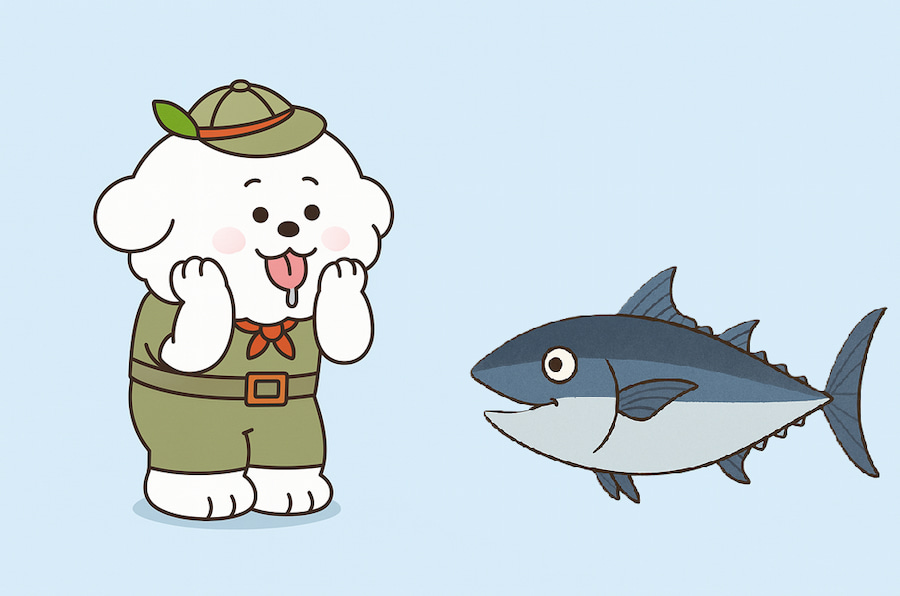Consumption of sugar by dogs is a very controversial topic and there are a wide range of opinions on it, in the dog community as well as in the veterinary community.
In general, dogs are allowed to consume foods that include sugars that occur naturally, such as fruits and vegetables; however, dog owners should avoid feeding their pets food products that contain added, artificial, or processed sugar. Some examples of these types of foods include cakes, cookies, chocolates, soft drinks, and others.
If you are a dog owner concerned about the health of your canine, particularly, related to sugar consumption and related queries you have come to the right place.

Can Dogs Eat Sugar?
Consuming sugar on a semi-regular basis can have a negative influence on a range of organs and metabolic processes in a dog’s body, in addition to weight gain. Major concerns associated with sugar consumption in dogs are diabetes, obesity, dental issues, stomach upsets, and a few others.

Obese dogs are prone to heart disease, kidney disease, liver disease, and joint problems such as patellar luxation.
However, it is important to distinguish between naturally occurring and added sugars since dogs are able to absorb natural sugars without any negative consequences. Usually, natural sugars come in combination with minerals and fiber boosting their nutritional profile.
Dogs can safely consume the natural sugars present in fruits as long as they are provided in moderation. Natural sugar-containing fruits that your canine can enjoy include bananas, mangoes, blueberries, peaches (without pit), cantaloupe, watermelon, and some others.
Eating these fruits will supply your pet with plenty of vitamins, minerals, and antioxidants among other benefits. But, these fruits also must be fed in limited quantities inside the framework of a balanced diet, otherwise, they can cause health concerns such as diarrhea and vomiting among others.

As opposed to natural sugars, which usually come in combination with fiber and other nutrients, added sugars are a source of unwanted calories with little to no nutritional value.
Artificial Sugar for Dogs
Offering artificial or processed sugar sweets to a dog’s diet should be avoided at any cost. Many times, foods made for human consumption have these sugars.
Among the health issues that might result from feeding dogs meals abundant in added artificial sugars include diabetes, obesity, dental issues, and stomach issues same as sugar. One serious health issue this high-sugar diet might lead to is obesity.
The most dangerous artificial sugar for dogs is xylitol. If dogs eat xylitol, it causes a rapid release of insulin in their body, leading to hypoglycemia and even liver failure.

Lee&Pol freeze-dries only fresh fruits and vegetables, with no added sugars or artificial sugar, ensuring healthy treats for your dog!
Is Sugar Bad for Dogs?
A dog should not be fed any sugar. Give your attention to feeding them a balanced diet that meets all of their nutritional needs.
If you’re looking for a healthier approach to reward your dog, you might consider offering him dog treats specifically made without a lot of sugar. Fruits or vegetables that are appropriate for dogs to eat. Your veterinarian should typically be consulted before adding any new foods to your dog’s diet.
Is Brown Sugar Bad for Dogs?
Now you might wonder, what about brown sugar? It is advised not to offer brown sugar to dogs either. Regarding sucrose composition, brown sugar, and white sugar are nearly the same. Like white sugar, brown sugar offers dogs no nutritional advantages except for a little energy due to carbohydrates.
Daily use of it may result in a number of health issues, including obesity, tooth problems, and maybe even diabetes. This is the case of long-term consumption, however, small amounts would not cause any immediate harm occasionally.
In certain canines, eating brown sugar can result in gastrointestinal upset that manifests as vomiting and diarrhea.
How Much Sugar Can a Dog Have?
Dogs’ sizes, weights, and general health all affect how much sugar they can consume without endangering their health. But generally speaking, it’s advised that you completely stop giving your dog any foods abundant in sugar. So, there is no specific recommended intake.
Even a small amount of sugar over a long period can lead to diabetes, dental issues, and obesity in dogs.

Side Effects of Dog Eating Sugar
As a result of consuming excessive amounts of sugar, dogs are susceptible to developing a wide range of health issues, some of which include the following:
Upset stomach
Having an upset stomach is the most likely instant symptom that will occur if your four-legged friend consumes an excessive amount of sugar. This is because their digestive system will have a tough time processing the sugar.
Bloating, vomiting, diarrhea, and indigestion are all symptoms that could occur in your dog if you give him this food.
Metabolic issue
Dogs that are given sugar consistently are also in danger of having health problems that will last for a longer period. Diabetes is one of these, along with disorders such as obesity, high blood sugar, and heart disease.
Other diseases include heart disease and kidney problems. In addition, sugar is a factor that contributes to systemic inflammation.

This includes pancreatitis, which is an inflammation of the pancreas that can pose a significant threat to the life of a dog.
Tooth decay
Cavities in the teeth and gum disease can be caused by consuming an excessive amount of sugar in canines.
Sugar has the potential to foster the growth of harmful bacteria in the mouth, which can result in the creation of acids that erode tooth enamel and cause inflammation of the gums. Sugar can also lead to the development of gum disease.

Sugar-Free Dog Treats
You can improve the quality of your relationship with your dog by doing something as simple as giving them a tasty treat. You are lucky because there are a few methods by which you can add sweets to the treats that you offer to your dog.
Chocolate, hard candies, ice cream, and other human delicacies and treats are detrimental to the health of your dog, so it is recommended to refrain from providing them to your dog. Select alternatively one of the delightful pleasures that are listed below to satisfy your cravings.
Dried Pollock
Made from the Pollock fish, a whitefish species naturally high in protein, these treats provide a wholesome snack that supports dogs’ ongoing muscle development as well as their general health.
Dried pollock is also an excellent source of omega-3 fatty acids, which are especially good for a dog’s skin and coat health as well as cognitive development.
By drying the fish, its inherent nutrients are maintained and no extra sweeteners or preservatives are required. For your dog, therefore, dried pollock is a safe and healthful option.
Low in fat and calories, these snacks can also help your pet or animal friend maintain a healthy weight. Dried Pollock’s chewy texture also helps to promote tooth health by reducing the buildup of tartar.

Lee&Pol constantly researches to create the best treats for your dog’s health by preserving the nutrients in dried pollock while removing salt and bones.
Fruits
While feeding your dog fruits with natural sugars, keep in mind a few things:
- The seeds and cores of fruits like mangoes and pineapples should be removed first and foremost as they could be a choking risk for dogs, particularly smaller breeds.
- Your dog should also be carefully introduced to any new food so you can monitor for any allergic responses or digestive issues.
- Moreover, some fruits can be toxic for dogs to eat. For instance, dogs might suffer kidney damage after consuming raisins and grapes. Always make sure any fruit you offer to your canine is completely safe for them.
Following are some of the fruits dogs can safely consume in moderation:
Apple
Apples are a great alternative to sugary treats for dogs. They are a rich source of vitamins A and C along with fiber and other nutrients boosting your dog’s health. Not only this, feeding on apples helps keep your dog’s teeth clean.
Banana
Bananas make a great treat for dogs as they are a great source of energy, vitamins, and minerals such as potassium.
Blueberries
If you want to give a boost of vitamins, minerals, and antioxidants to your pooch there is no better treat to offer than blueberries. They are also low in unwanted calories making them an ideal choice for dogs.
Vegetables
Following are some of the veggies dogs can consume as sugar-free treats. Veggies are a great source of vitamins, fiber, and minerals for dogs. Some of these include:
Carrots
Carrots provides your dog with vitamin A that good for eye health. And carrots crunchy texture makes your dog’s teeth stronger and keeps them clean and healthy.
Beets
As indicated by their red color, beets are a vegetable rich in iron. They also contain antioxidants like betaine, nitrates, and fiber, which can greatly benefit a dog’s liver, heart, and digestive health.
Kabocha Squash
Kabocha squash is rich in dietary fiber, which helps with digestion and promotes healthy bowel movements, making it excellent for dogs with indigestion or constipation.

However, the tough skin and seeds can be difficult for dogs to digest, so it’s best to remove them before feeding.
What To Do If Your Dog Eats Sugar
Offering him anything that can offset the sugar is not ideal, and trying to make him throw up is not worth it because by now the sugar has probably dissolved. These are not workable solutions.
A dog’s symptoms, such as vomiting and diarrhea, are typical when they ingest something that is not a chemical they are used to. Look out for these typical signs.
He is likely not to feel well which he normally would throughout the next twelve hours or so. Look out for any symptoms that could point to a bloated abdomen. Should this happen, take your dog to a veterinarian who specializes in emergency care or your own.
Moreover, I would restrict feeding him for around twelve hours to allow his gastrointestinal tract and digestive system to rest.

Should he begin to vomit and experience diarrhea that does not go away in a day or two, you should get him to the vet very far away.
Conclusion
Sugar in general is not something dogs should consume, especially processed or artificial sugar. All types of sugars including brown sugar are not a healthy option for dogs and even fruits that have a high sugar content should be offered in moderation, and as occasional treats.
When offering fruits, a balance must also be found between the fruits’ sugar content and your dog’s overall nutritional needs. Any treats, particularly those containing natural sugars, should be evaluated to be under the daily calorie limits for dogs that are overweight or have illnesses like diabetes.
Speaking with a veterinarian should always come before making any significant changes to your dog’s diet, including adding new treats like fruits or vegetables. Your veterinarian may assess the particular dietary and health needs of your dog and then offer professional guidance.
FAQ
Sugar is not toxic for dogs but it should not be offered to dogs at all. All forms of sugar contribute to health problems if offered to dogs on a regular basis.
Brown sugar has a similar sucrose composition as processed sugar. Offering brown sugar will result in health problems and has no nutritional benefit for dogs. A dog’s diet should mainly comprise protein, not carbohydrates.
If your dog regularly consumes sugar over time it will lead to health issues such as diabetes, obesity, joint problems, dental issues, and much more. So it is best to avoid sugar and sugar products and opt for sugar-free diets and treats for your pet.



